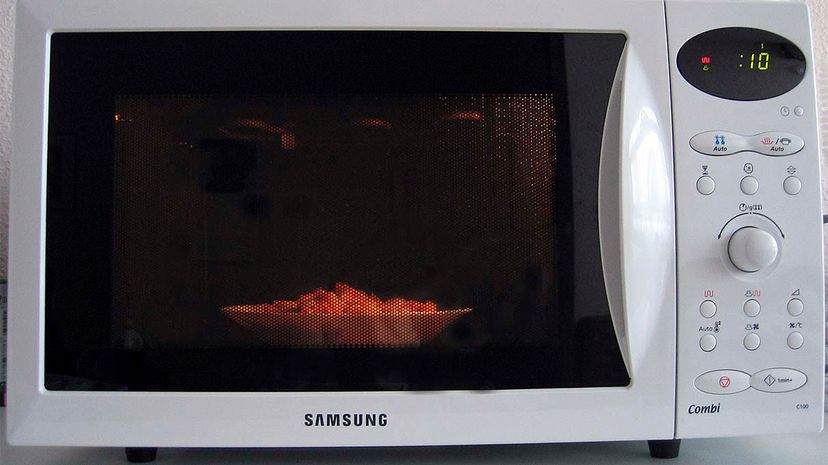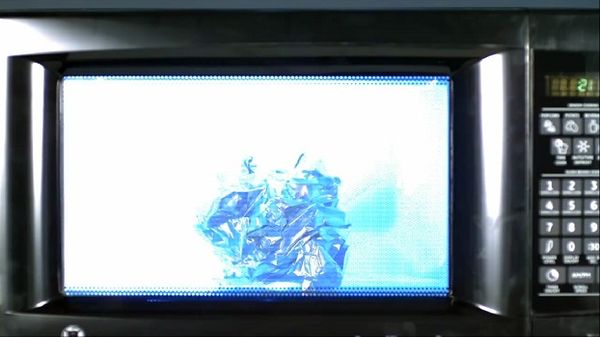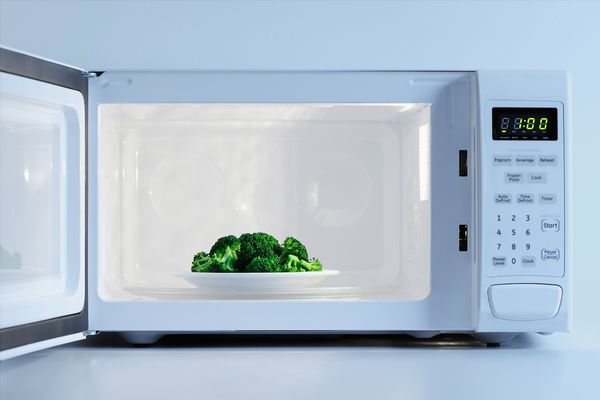When a product becomes pervasive enough to spawn other consumer product industries (microwave popcorn and burritos, anyone?) you know it's going to have its detractors — especially when you have to use the word "radiation" to describe how it works.
But "radiation" is just a term used to describe waves of energy on the electromagnetic spectrum, which includes radio waves, visible light and X-rays. Microwave ovens work by emitting microwave radiation, the wavelengths of which are just a little shorter than the radio waves used in radar technology. These waves are used to jiggle water molecules inside food millions of times per second, while rubbing them together in the same way we rub our hands together for warmth. This can create a whole lot of heat very quickly.
Even though certain wavelengths on the electromagnetic spectrum are very dangerous, microwaves are pretty benign.



